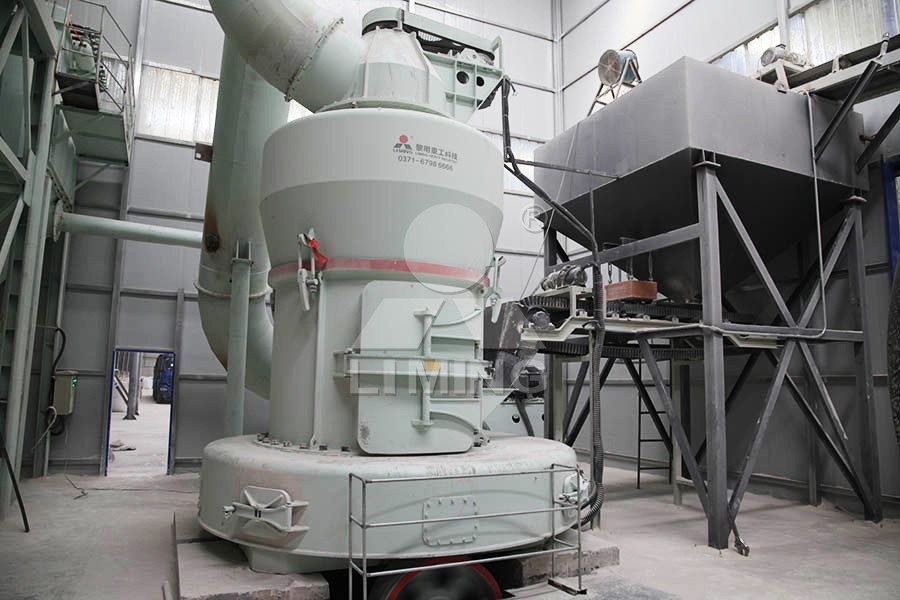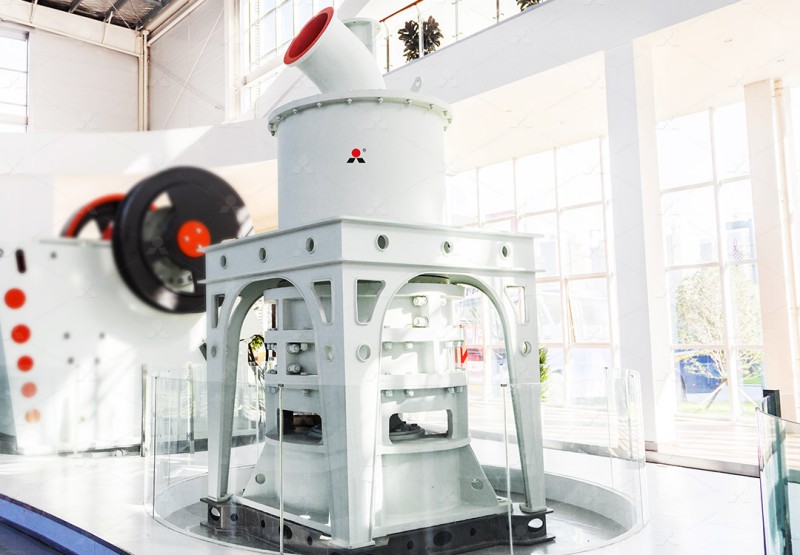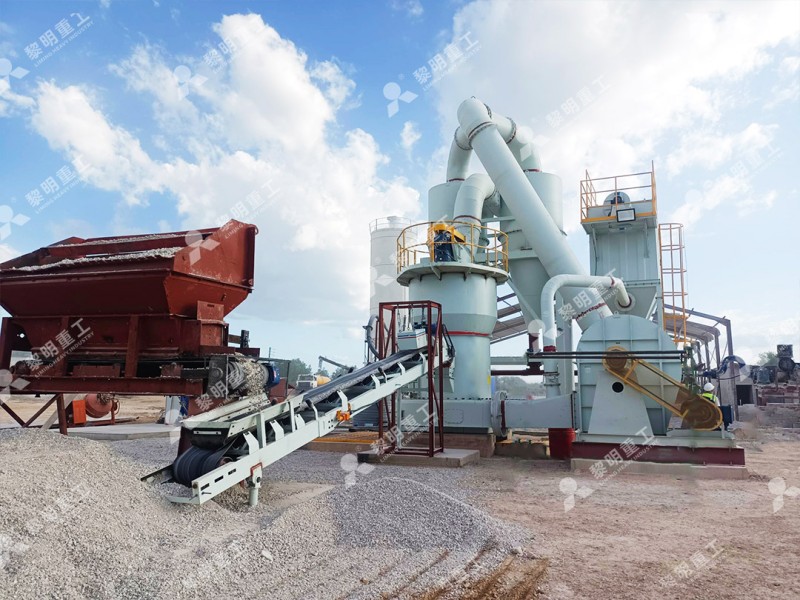Raymond Mill for Bentonite Grinding: Efficient Powder Processing Solutions
We provide a wide range of mills — including Raymond mill, trapezoidal mill, vertical mill, ultrafine mill, and ball mill, obtained ISO9001 international quality certification, EU CE certification, and Customs Union CU-TR certification. Suitable for processing minerals such as limestone, phosphate, quicklime, kaolin, talc, barite, bentonite, calcium carbonate, dolomite, coal, gypsum, clay, carbon black, slag, cement raw materials, cement clinker, and more.
The discharge range of these mills can be adjusted to meet specific processing needs, typically from 80-400 mesh, 600-3250 mesh, and can achieve the finest particle size of up to 6000 mesh(D50).
If you are looking for a reliable grinding solution to turn stone or minerals into fine powder, please feel free to contact our online customer service.
Raymond Mill for Bentonite Grinding: Efficient Powder Processing Solutions
Bentonite processing requires specialized equipment to achieve the precise particle size distribution and quality standards demanded by various industries. As a swelling clay mineral with unique properties, bentonite presents specific challenges in grinding operations, including moisture sensitivity, variable hardness, and the need for consistent fineness. Proper milling equipment selection is crucial for optimizing production efficiency and product quality.

Traditional grinding approaches often struggle with the rheological characteristics of bentonite, which can lead to equipment clogging, inconsistent output, and excessive energy consumption. The ideal milling solution must address these challenges while maintaining operational reliability and cost-effectiveness.
Advanced Milling Technologies for Bentonite Processing
Modern bentonite processing has evolved significantly from basic crushing methods to sophisticated grinding systems capable of producing precisely controlled particle sizes. The key considerations for bentonite milling include:
- Moisture control during processing
- Consistent particle size distribution
- Minimal iron contamination
- Energy efficiency
- Environmental compliance
Among the various options available, Raymond Mill systems have proven particularly effective for bentonite applications. Their design specifically addresses the challenges posed by clay minerals while providing the flexibility needed for different bentonite grades and end-use requirements.
Specialized Equipment for Superior Results
For operations requiring ultra-fine bentonite powders, the MW Ultrafine Grinding Mill represents a significant technological advancement. This system operates with an input size of 0-20 mm and capacity ranging from 0.5-25 tph, making it suitable for various production scales. The MW series is specifically engineered for customers who need to produce ultra-fine powder with exceptional consistency.

The MW Ultrafine Grinding Mill incorporates several innovative features that make it ideal for bentonite processing. Its newly designed grinding curves of grinding roller and grinding ring significantly enhance grinding efficiency. Compared to conventional systems, this mill delivers 40% higher production capacity with the same fineness and power consumption. The energy savings are equally impressive, with system energy consumption reduced to just 30% of jet grinding mills.
Another notable advantage is the adjustable fineness range between 325-2500 meshes, achieved through German cage-type powder selector technology. This precision separation capability ensures consistent product quality batch after batch. The absence of rolling bearings and screws in the grinding chamber eliminates common failure points, enhancing reliability and reducing maintenance requirements.
Environmental and Operational Benefits
Modern bentonite processing must address environmental concerns while maintaining production efficiency. The integration of efficient pulse dust collectors and mufflers in advanced milling systems effectively controls dust and noise emissions. This comprehensive approach ensures full compliance with national environmental protection standards while maintaining optimal working conditions.
The digitalized processing capabilities of contemporary mills provide additional advantages. With numerically controlled operations for cutting, bending, planing, milling, and paint spraying, these systems achieve exceptional machining precision, particularly for core components. This precision translates to longer service life, reduced downtime, and more consistent product quality.

Applications and Material Handling
Processed bentonite finds applications across numerous industries, including foundry sand bonding, drilling muds, civil engineering, and environmental remediation. Each application demands specific particle characteristics that advanced milling systems can reliably deliver. The versatility of modern grinding equipment allows producers to serve multiple market segments with consistent quality products.
Frequently Asked Questions
What makes Raymond Mill particularly suitable for bentonite grinding?
Raymond Mill systems excel with bentonite due to their ability to handle moist materials, provide consistent particle size distribution, and operate efficiently with clay minerals’ unique properties. The grinding mechanism is specifically designed for materials like bentonite that require precise control over final product characteristics.
How does the MW Ultrafine Grinding Mill achieve energy savings compared to traditional systems?
The MW series incorporates optimized grinding curves and advanced separation technology that reduces energy consumption by up to 70% compared to jet mills. The efficient design minimizes power requirements while maintaining high production capacity and product quality.
What particle size range can be achieved with modern bentonite grinding equipment?
Advanced systems like the MW Ultrafine Grinding Mill can produce bentonite powders ranging from 325 to 2500 meshes, with the ability to achieve d97≤5μm in a single pass. This flexibility allows producers to meet diverse customer requirements with a single machine.
How do modern mills address environmental concerns in bentonite processing?
Contemporary grinding systems integrate pulse dust collectors, noise reduction technology, and closed-system designs that minimize environmental impact. These features ensure compliance with strict emissions standards while maintaining operational efficiency.
What maintenance advantages do advanced bentonite grinding systems offer?
Systems like the MW Ultrafine Grinding Mill feature designs that eliminate common failure points, with no rolling bearings or screws in the grinding chamber. External lubrication systems enable maintenance without shutdown, supporting continuous 24-hour operation and reducing total cost of ownership.
